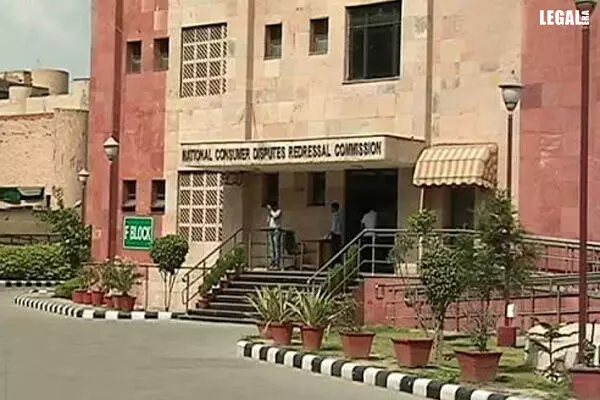- Home
- News
- Articles+
- Aerospace
- Artificial Intelligence
- Agriculture
- Alternate Dispute Resolution
- Arbitration & Mediation
- Banking and Finance
- Bankruptcy
- Book Review
- Bribery & Corruption
- Commercial Litigation
- Competition Law
- Conference Reports
- Consumer Products
- Contract
- Corporate Governance
- Corporate Law
- Covid-19
- Cryptocurrency
- Cybersecurity
- Data Protection
- Defence
- Digital Economy
- E-commerce
- Employment Law
- Energy and Natural Resources
- Entertainment and Sports Law
- Environmental Law
- Environmental, Social, and Governance
- Foreign Direct Investment
- Food and Beverage
- Gaming
- Health Care
- IBC Diaries
- In Focus
- Inclusion & Diversity
- Insurance Law
- Intellectual Property
- International Law
- IP & Tech Era
- Know the Law
- Labour Laws
- Law & Policy and Regulation
- Litigation
- Litigation Funding
- Manufacturing
- Mergers & Acquisitions
- NFTs
- Privacy
- Private Equity
- Project Finance
- Real Estate
- Risk and Compliance
- Student Corner
- Take On Board
- Tax
- Technology Media and Telecom
- Tributes
- Viewpoint
- Zoom In
- Law Firms
- In-House
- Rankings
- E-Magazine
- Legal Era TV
- Events
- Middle East
- Africa
- News
- Articles
- Aerospace
- Artificial Intelligence
- Agriculture
- Alternate Dispute Resolution
- Arbitration & Mediation
- Banking and Finance
- Bankruptcy
- Book Review
- Bribery & Corruption
- Commercial Litigation
- Competition Law
- Conference Reports
- Consumer Products
- Contract
- Corporate Governance
- Corporate Law
- Covid-19
- Cryptocurrency
- Cybersecurity
- Data Protection
- Defence
- Digital Economy
- E-commerce
- Employment Law
- Energy and Natural Resources
- Entertainment and Sports Law
- Environmental Law
- Environmental, Social, and Governance
- Foreign Direct Investment
- Food and Beverage
- Gaming
- Health Care
- IBC Diaries
- In Focus
- Inclusion & Diversity
- Insurance Law
- Intellectual Property
- International Law
- IP & Tech Era
- Know the Law
- Labour Laws
- Law & Policy and Regulation
- Litigation
- Litigation Funding
- Manufacturing
- Mergers & Acquisitions
- NFTs
- Privacy
- Private Equity
- Project Finance
- Real Estate
- Risk and Compliance
- Student Corner
- Take On Board
- Tax
- Technology Media and Telecom
- Tributes
- Viewpoint
- Zoom In
- Law Firms
- In-House
- Rankings
- E-Magazine
- Legal Era TV
- Events
- Middle East
- Africa
National Consumer Commission Questions Validity of Arbitrary Survey Reports, Awards Compensation for Fire Loss

National Consumer Commission Questions Validity of Arbitrary Survey Reports, Awards Compensation for Fire Loss
The National Consumer Disputes Redressal Commission (NCDRC) presided over by Subhash Chandra and Sadhna Shanker has ruled in favour of a woollen carpet yarn manufacturer in a dispute with New India Assurance Company. The case involved a denied insurance claim for fire damage at the company's factory.
The manufacturer (complainant) insured their factory unit with New India Assurance. A fire during the policy period caused significant damage to stock, machinery, and buildings, resulting in a claimed loss of ₹61,08,700. The company informed the insurance company and received a surveyor visit to assess the damage. However, the surveyor failed to submit a report or settle the claim.
Through the Right to Information Act, the complainant discovered the surveyor had only assessed a value of ₹11,49,908, far below the actual loss claimed. Despite protests and attempts to obtain a resolution, the insurance company did not take action, citing ongoing assessment and delays. The manufacturer then filed a complaint with the State Commission, which was dismissed. They subsequently appealed to the National Commission.
The insurance company challenged the complaint's validity due to a missing party (Zonal Manager) and claimed it was premature as the assessment was ongoing. They also blamed the manufacturer for delayed document submissions and denied jurisdiction by the State Commission.
Furthermore, the company contested the claim amount, stating the surveyor's assessment of ₹11,49,908 was accurate. They accused the manufacturer of inflating the claim, highlighted discrepancies between the claimed insurance amount and reported zero taxable income in tax returns.
The NCDRC focused on the accuracy of the surveyor's report. The commission noted inconsistencies in the surveyor's initial admission of severely damaged and unquantifiable stock, followed by a later claim of volumetric estimation without justification.
The commission further criticised the surveyor's disregard for documented evidence provided by the manufacturer, including audited financial statements, purchase/sales records, and tax returns, which supported their stock value claim of ₹33,13,300.
The commission also addressed the State Commission's reliance on income tax returns. They explained tax returns consider various deductions before calculating taxable income, making it unreliable for determining actual stock value without examining supporting documents.
The NCDRC cited a previous case to establish that surveyor reports are not infallible and can be challenged with valid reasons. In this case, the commission deemed the report arbitrary due to a lack of justification and disregard for the provided evidence.
The commission overruled the order by the state commission, directing the insurance company to pay ₹1,28,000 and ₹2,17,956 for the cost of the loss sustained by the building and the machinery. Furthermore, the commission instructed the company to pay ₹30,62,104 (after deducting ₹10,000 due to policy excess, as per the surveyor’s report), along with interest at an annual rate of 9 per cent from the date of complaint realisation.



